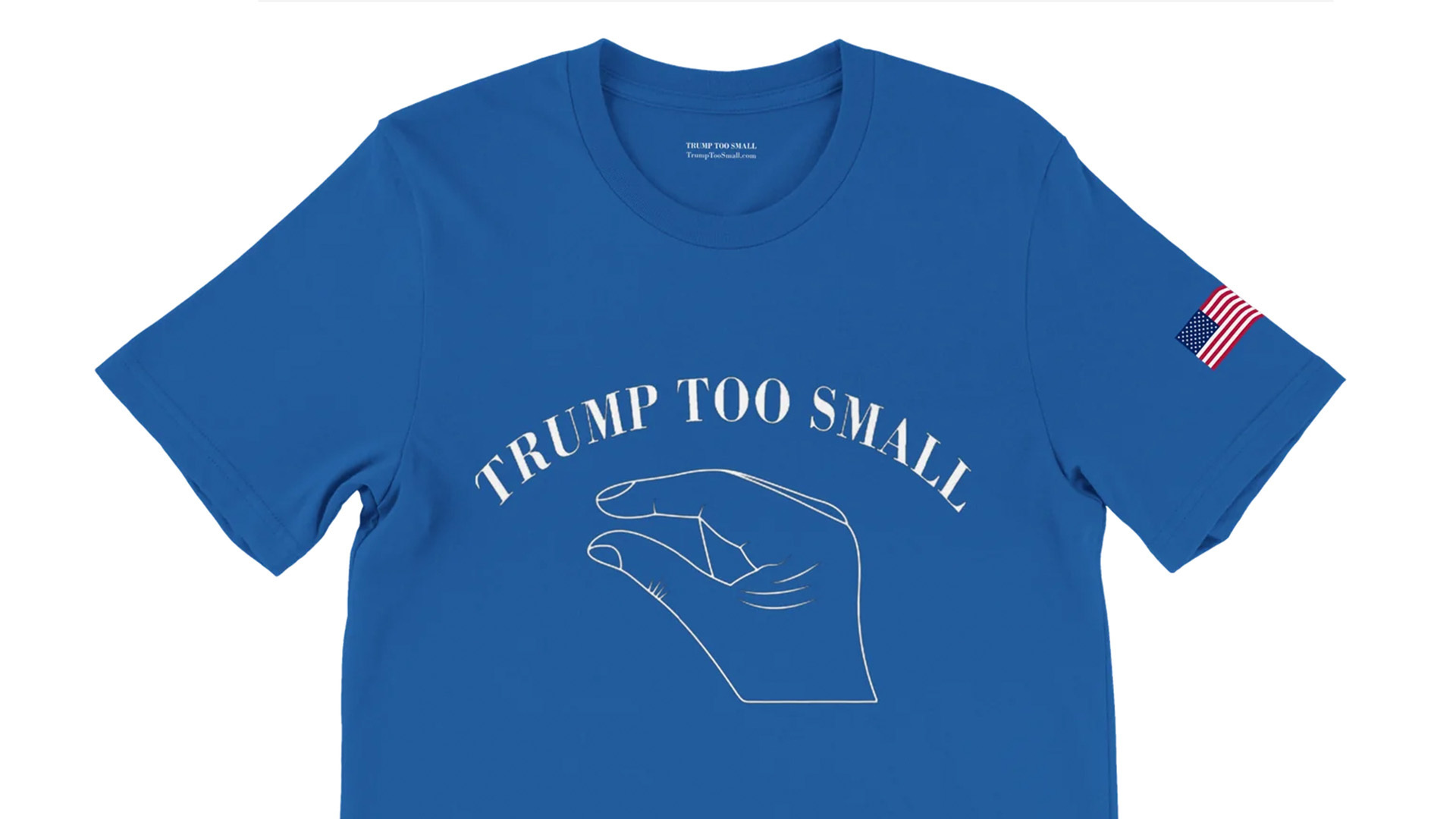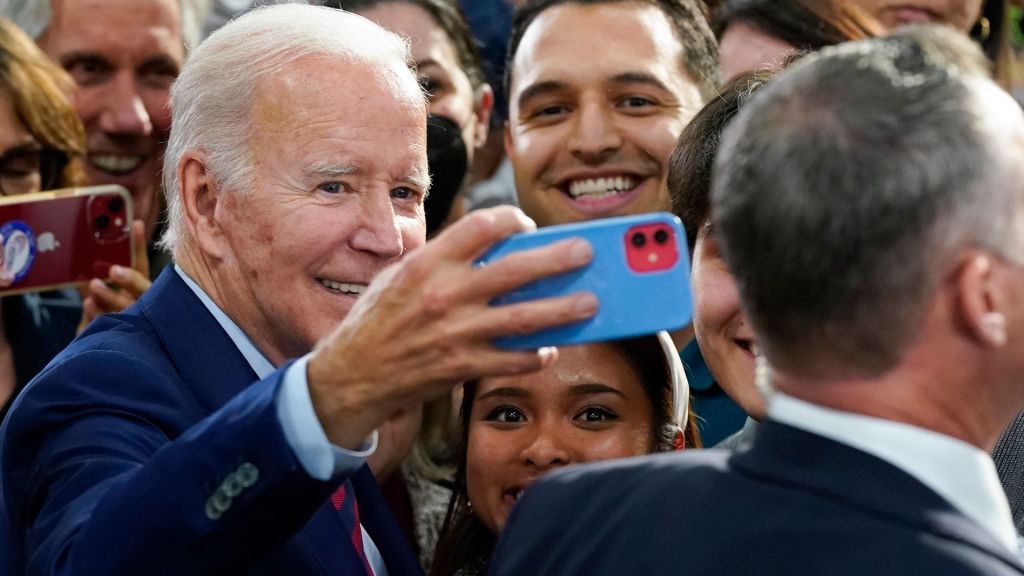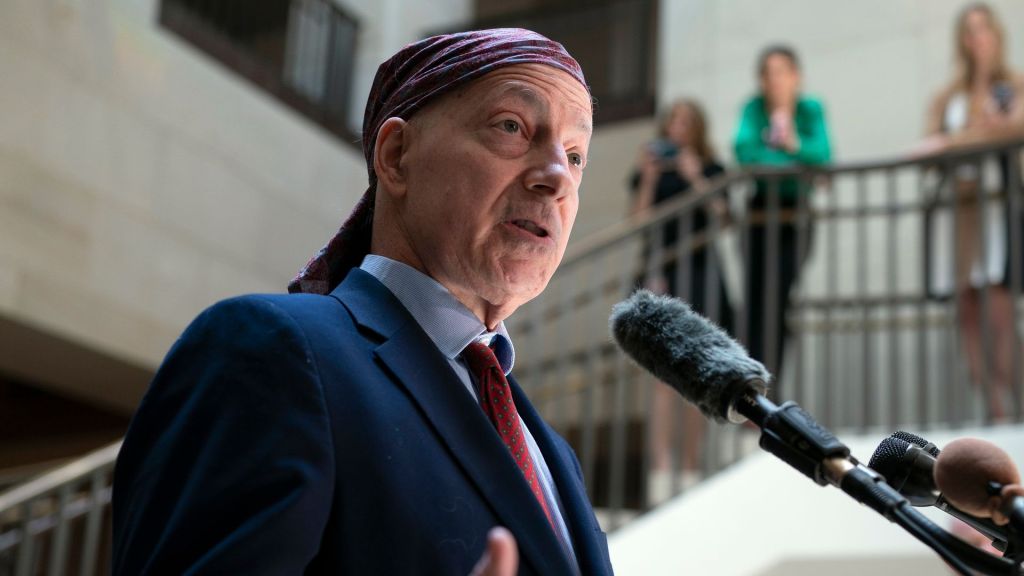
Trump too small. The maker of this t-shirt says it’s a double entendre referring to the former President’s overall approach to governing and this moment between Trump and Marco Rubio during a 2016 primary debate.
Donald Trump: “He referred to my hands, if they’re small, something else must be small, I guarantee you there’s no problem.”
T-shirt maker Steve Elster wants to trademark “Trump too small”, which requires the Supreme Court to answer a much bigger question.
In Vidal v. Ester, the Justices will decide whether refusing to register a trademark violates free speech when the requested trademark contains criticism of a government official or public figure.
Federal law states a trademark shall be refused registration if it identifies a particular living individual, unless of course that person gave written consent.
Elster’s lawyers argued that withholding a trademark is a burden on free speech because without one, Elster doesn’t get a trademark’s legal protections.
Jonathan Ellis Taylor: “The government’s interest in discouraging marks because they hurt the feelings of public figures has nothing to do with the purposes of trademark registration.”
The deputy Solicitor General argued against Elster and said the Patent and Trademark Office simply decides whether the requested trademark refers to a living individual, not whether it’s critical or flattering.
Malcolm Stewart: “Imagine a car dealer in New York uses as his slogan, ‘the Derek Jeter of car dealers’, and he explains, I’m not claiming that there’s any affiliation with Derek Jeter. All I’m saying is, I perform my own job with the same excellence and professionalism that New Yorkers have come to associate with Derek Jeter. We could accept the explanation and Derek Jeter could still think ‘I’m offended by the idea of someone with whom I have no connection, attempting to profit by linking his own products to my name and my good reputation’.”
Elster’s legal team also got tough questions from justices, who wanted to know if this trademark is meant to protect his speech, or just his business interests.
Justice Thomas: “Mr. Taylor, could your client make the shirts or mugs or whatever he wants to make now, unregistered, without registration?”
Jonathan Ellis Taylor: “He can. Justice Thomas.”
Justice Thomas: “So what speech precisely is being burdened?”
Jonathan Ellis Taylor The burden on speech is that my client is being denied important legal rights and benefits.
Justice Sonia Sotomayor:
“I’m sorry, counsel, your whole answer is making me think that you’re just conceding the other side’s point that this is a government benefit.// You’re getting the benefit of stopping others from competing with you.”
Straight from dc, I’m RAy Bogan.







